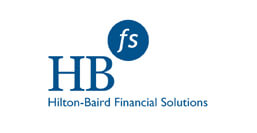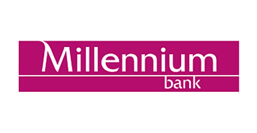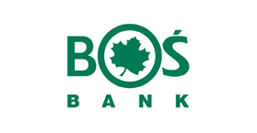How it works?
Factoring, converting the receivables into cash
Factoring is a convenient way for businesses to raise funds to finance their trade. It is also an excellent form of hedging against the risk of debtors’ lack of payment. The service is readily available because the funding is based solely on the invoices issued. Thanks to its affordability, factoring is gaining popularity among the entrepreneurs and has become the fastest growing financial service. The factors who deliver these facilities are a true financial partner for businesses.
The service is just converting the receivables for cash, in practice. If the contractor delays to pay the delivered goods or service, what happens, the seller has blocked funds for further activity of his business. Factoring allows to free it. The factor pays the entrepreneur the major part of the amount resulting from the invoice, and – if necessary – is taking steps towards the debtor to pay the whole debt. Receiving the due payment from the debtor, the factor pays the entrepreneur the balance of the funds. This enables the entrepreneur to develop their business without any stoppage.
The company that delivered the goods or service invoices the contractor. The invoice due becomes the basis for factoring. The invoice evidences the debt assigned to the factor. Being in rights to the receivable, factor pays the client the funds.
A factoring company, that grants the entrepreneur the funds on the basis of issued invoices, by converting the receivables arising from the buyer’s obligations.
The buyer of the goods or services delivered by the trader is obliged to pay the invoice. While servicing the factoring facilities, factor does all the activities related to factored receivables on behalf of the seller.
Factoring, converting the receivables into cash
Factoring is a convenient way for businesses to raise funds to finance their trade. It is also an excellent form of hedging against the risk of debtors’ lack of payment. The service is readily available because the funding is based solely on the invoices issued. Thanks to its affordability, factoring is gaining popularity among the entrepreneurs and has become the fastest growing financial service. The factors who deliver these facilities are a true financial partner for businesses.
The service is just converting the receivables for cash, in practice. If the contractor delays to pay the delivered goods or service, what happens, the seller has blocked funds for further activity of his business. Factoring allows to free it. The factor pays the entrepreneur the major part of the amount resulting from the invoice, and – if necessary – is taking steps towards the debtor to pay the whole debt. Receiving the due payment from the debtor, the factor pays the entrepreneur the balance of the funds. This enables the entrepreneur to develop their business without any stoppage.
The company that delivered the goods or service invoices the contractor. The invoice due becomes the basis for factoring. The invoice evidences the debt assigned to the factor. Being in rights to the receivable, factor pays the client the funds.
A factoring company, that grants the entrepreneur the funds on the basis of issued invoices, by converting the receivables arising from the buyer’s obligations.
The buyer of the goods or services delivered by the trader is obliged to pay the invoice. While servicing the factoring facilities, factor does all the activities related to factored receivables on behalf of the seller.
[smartslider3 slider=3]
How does it work in practice
Factoring is a business friendly service. Anyone who uses it can count on funding, basing on issued invoices. In this way it secures stable access to funds, regardless of whether the buyer pays for the service or not. The risk involved is taken over by a factoring company.
How does it work in practice
Factoring is a business friendly service. Anyone who uses it can count on funding, basing on issued invoices. In this way it secures stable access to funds, regardless of whether the buyer pays for the service or not. The risk involved is taken over by a factoring company.
Case study
The transport company has carried out the services for which it had issued an invoice amounting PLN 70k. plus VAT. The company has benefited from the financing of day-to-day operations in the form of factoring for many years. That is why the invoices were delivered to a specialized provider of financial services. Accordingly the contractor was informed about it. Factoring company had transferred to the account of transport company 80 percent of the value of the said invoice. Then the contractor settled the payment. Being paid in full, factoring company had transferred to the transport company the balance of the funds.
The cost for a single invoice with a 60-day payment is approximately 0.6% for recourse factoring and 0.8% for non-recourse factoring.
Case study
The transport company has carried out the services for which it had issued an invoice amounting PLN 70k. plus VAT. The company has benefited from the financing of day-to-day operations in the form of factoring for many years. That is why the invoices were delivered to a specialized provider of financial services. Accordingly the contractor was informed about it. Factoring company had transferred to the account of transport company 80 percent of the value of the said invoice. Then the contractor settled the payment. Being paid in full, factoring company had transferred to the transport company the balance of the funds.
The cost for a single invoice with a 60-day payment is approximately 0.6% for recourse factoring and 0.8% for non-recourse factoring.







































